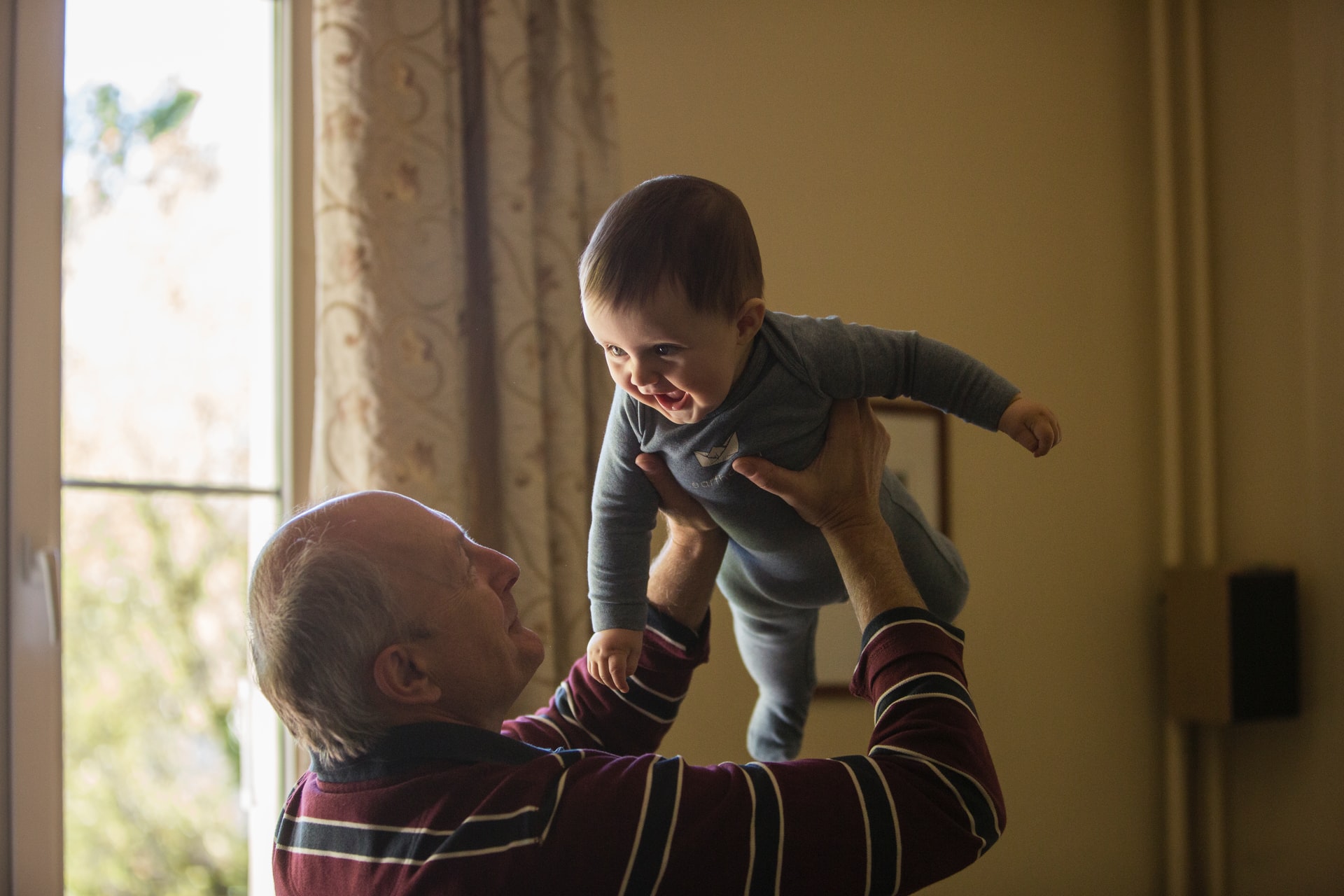Codependence is a dysfunctional relationship pattern where one person’s unhealthy behaviors are enabled by another person who feels they are helping them. This dynamic can feel comforting to both people, but it can also feel like a trap because that’s truly what it is.
Any pattern of dysfunction that becomes habitual offers a facade of comfort because as humans we find familiarity and predictability comfortable. Yet, there’s a great deal of harm that can happen in codependent relationships.
 The negative consequences of codependency can cause these patterns to take an even firmer grasp on the relationship dynamic, accompanied by the hope that trying harder will fix everything. Irvine Christian Counseling can provide support and guidance to help break free from these unhealthy patterns and build healthier relationships.
The negative consequences of codependency can cause these patterns to take an even firmer grasp on the relationship dynamic, accompanied by the hope that trying harder will fix everything. Irvine Christian Counseling can provide support and guidance to help break free from these unhealthy patterns and build healthier relationships.
Eventually, one or both people sometimes reach a breaking point. If you are the caregiver/helper in a codependent relationship, you might one day realize what you’re doing isn’t good for you or the other person.
If you’ve reached that realization, here’s the good news: you’ve already taken one of the biggest steps in your healing journey. Admitting there’s a problem, and looking for a solution, is the beginning of finding freedom from dysfunction.
Once you’ve taken that step, you might be wondering, “How can I stop being codependent?” Let’s discuss several things you can learn and do to break the chains of codependency and find healthier patterns of interaction in a relationship.
Learning more about codependency
Before you can find solutions and change, you must start with a deep understanding of the core problem. The concept of codependency was first used to describe the enabling patterns in relationships between alcoholics and their spouses.
Over the past few decades, experts have recognized that codependency also exists in many other contexts, specifically, anytime there is an overly dependent, one-sided relationship where the help one person offers is actually making things worse.
Codependency can develop in marriages, between parents and children, and even between siblings or friends.
The Merriam-Webster dictionary defines codependency as:
“(A) psychological condition or a relationship in which a person manifesting low self-esteem and a strong desire for approval has an unhealthy attachment to another often controlling or manipulative person (such as a person with an addiction to alcohol or drugs).”
The phrase “controlling or manipulative” might seem excessive to you, especially if the person you’re helping is rarely unpleasant to you.
One common example is when a parent enables his or her grown child to live an unproductive life and never hold down a steady job or have a fulfilling adult relationship. The adult child may be passive and docile, and not seem controlling or manipulative. However, the long-term results of this enabling have severely stunted their development, and they may lash out or struggle emotionally once you try to change the dynamic.
Identifying the traits of codependency
According to Psych Central, these are the four core elements of the “giver” in codependent relationships:
Self-sacrifice
The giver in the relationship sacrifices their own needs, desires, and even thoughts and opinions to “help” the other person.
 A tendency to focus on others
A tendency to focus on others
A need for control
It may be difficult for the giver to see that they have a desire for control and approval which is partly driving the unhealthy dynamics.
Difficulty recognizing and expressing emotions
Because the need for approval runs so deep, it can feel like a core aspect of the giver’s personality instead of a separate emotion that can be identified and managed healthily.
Understanding what codependency is not
As you’re learning about codependency, it’s vital to understand that all dependence on others is not codependency. We are all human and God created us to rely on one another. Throughout Scripture, we can read God’s commands to love one another (John 13:34), bear one another’s burdens (Galatians 6:2), serve each other (Galatians 5:13), and cultivate attitudes of humility and self-denial (Philippians 2:3-4).
Helping others is not inherently bad, but it can become that way when we are helping them out of a desire for human approval and mistaken beliefs about what is truly helpful.
It can be hard for a codependent giver to acknowledge that they might be helping someone but in an unhelpful way. This is not a call for shame or guilt; rather, it is an invitation to love in a way that promotes the full flourishing of both of you.
Here are a few more disclaimers about what codependency is not:
- Someone is not automatically codependent just because they rely on someone else, especially during a crisis or a long-term trial.
- A relationship characterized by mutual care and help is probably not codependent.
- Being a person who is caring and giving does not make you codependent.
- Identifying as a people-pleaser, having social anxiety, or having an anxious attachment style does not automatically make you codependent.
Again, codependent relationships have strong patterns of enabling and one-sided help that is not objectively helpful for either person.
Why does someone become codependent?
Sometimes codependency develops in adulthood after experiencing addiction, abuse, or other traumatic events. But often, according to Verywell Health, codependency begins in a dysfunctional family of origin in childhood. In this type of family, emotions are repressed instead of acknowledged. A child learns to get his or her needs met by meeting others’ needs, instead of identifying and expressing his or her own needs.
 Finding help for codependency
Finding help for codependency
Any addiction (codependency is sometimes called “relationship addiction”) or unhealthy pattern is incredibly difficult to overcome by yourself. If you think you are in a codependent relationship, the next step you can take after learning about it is to talk about it to someone in your life.
One option is to talk to a healthy and balanced friend who can offer a kind perspective on the situation and provide accountability as you take steps to overcome these patterns.
Counseling for codependency can be an invaluable resource as you seek to develop a healthier relationship. A professional Christian counselor can provide expert advice and help you set goals and navigate the complexities of extricating yourself from this pattern. (This does not necessarily mean abandoning the relationship!)
You’ll want to start taking small steps to set healthy boundaries for yourself and the other person. You may be able to make drastic overnight changes, but often baby steps will better get you where you want to go.
Developing a deeper understanding of healthy relationships
On your journey, you will begin to understand and experience aspects of relationships that you might not have known about before. Here are a few examples:
Differentiation
It’s essential to have a healthy sense of self, meaning your identity apart from others. Being able to see yourself as a whole, valuable person apart from anyone else is a crucial aspect of your journey.
Interdependence
The goal of codependency recovery is not to become isolated and hyper-independent but to experience balanced levels of dependence with the network of people in our lives.
Love
What does love look like? Sometimes love doesn’t feel good to us or someone else. True love means living in a way that honors God and does good to other people and ourselves.
Boundaries
This word has entered the popular lexicon because it’s such a drastically important concept to understand. Boundaries are not about controlling anyone else; they’re premeditated decisions of what you will allow into your life.
Freedom
Relationships should not feel like slavery. There are times when our responsibility for others (for example, as a caregiver for someone with a chronic physical or mental illness) can be overwhelming and cause burnout. But in those cases, our weariness simply signals our humanity, not excessive giving that enables dysfunction.
Overcoming roadblocks
Codependency recovery will not be an easy path. Once you’ve learned about codependency, sought help to change unhealthy patterns, and implemented practical changes in your relationship, there are still many hurdles to overcome.
One of the most common roadblocks in codependency recovery is, as discussed above, a sense of false guilt and shame. You probably grew so accustomed to doing whatever the other person wanted that you feel like a bad, selfish person for setting boundaries and no longer enabling.
 Continuing the work of recovery will help you process these feelings and develop deep confidence that you are truly choosing the path of love by doing what’s best for both of you.
Continuing the work of recovery will help you process these feelings and develop deep confidence that you are truly choosing the path of love by doing what’s best for both of you.
Depending on the dynamics of your codependent relationship, the other person may exhibit anger, distress, or even in some cases, become threatening or abusive. You may deal with a great deal of fear and distress yourself, as you worry that you are failing the person who was depending on you.
It’s easy to “relapse” into old patterns. Counseling can help you maintain your commitment to recovery and navigate the nuances of your situation. If you are interested in learning more about overcoming codependency, please call Irvine Christian Counseling today. Codependency recovery is possible; get started today.
https://www.mhanational.org/co-dependency
https://psychcentral.com/lib/symptoms-signs-of-codependency
https://psychcentral.com/blog/imperfect/2018/09/the-difference-between-dependency-and-codependency
https://www.verywellhealth.com/codependency-5093171
“Silhouette”, Courtesy of Ye Jinghan, Unsplash.com, CC0 License; “Dead Sunflower”, Courtesy of Ed Leszczynski, Unsplash.com, CC0 License; “Unlocked”, Courtesy of Oscar Ivan Esquivel Arteaga, Unsplash.com, CC0 License; “Flower Bud”, Courtesy of Joshua J. Cotten, Unsplash.com, CC0 License
-
Kate Motaung: Curator
Kate Motaung is the Senior Writer, Editor, and Content Manager for a multi-state company. She is the author of several books including Letters to Grief, 101 Prayers for Comfort in Difficult Times, and A Place to Land: A Story of Longing and Belonging...
DISCLAIMER: THIS ARTICLE DOES NOT PROVIDE MEDICAL ADVICE
Articles are intended for informational purposes only and do not constitute medical advice; the Content is not intended to be a substitute for professional medical advice, diagnosis, or treatment. All opinions expressed by authors and quoted sources are their own and do not necessarily reflect the opinions of the editors, publishers or editorial boards of Irvine Christian Counseling. This website does not recommend or endorse any specific tests, physicians, products, procedures, opinions, or other information that may be mentioned on the Site. Reliance on any information provided by this website is solely at your own risk.





